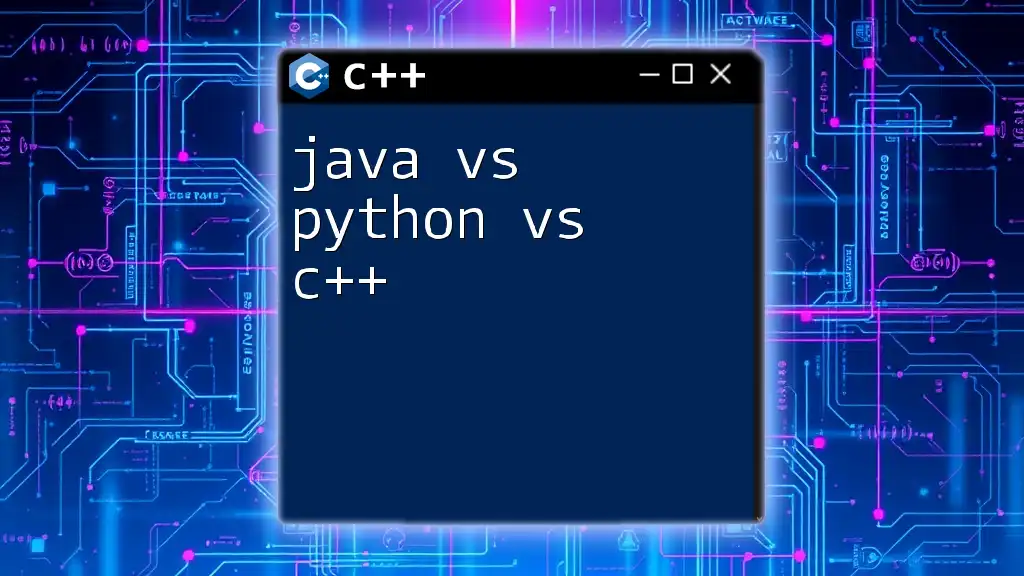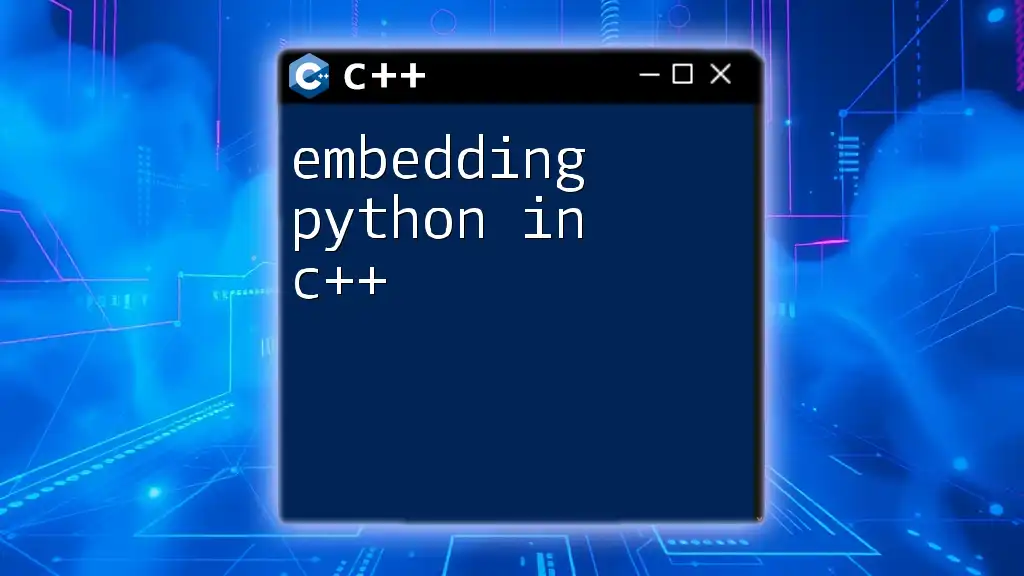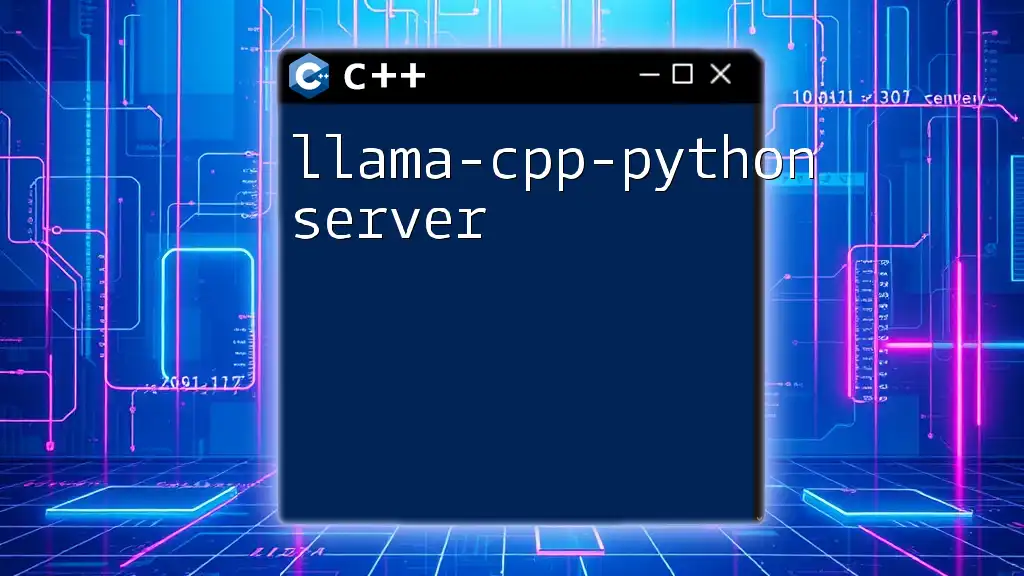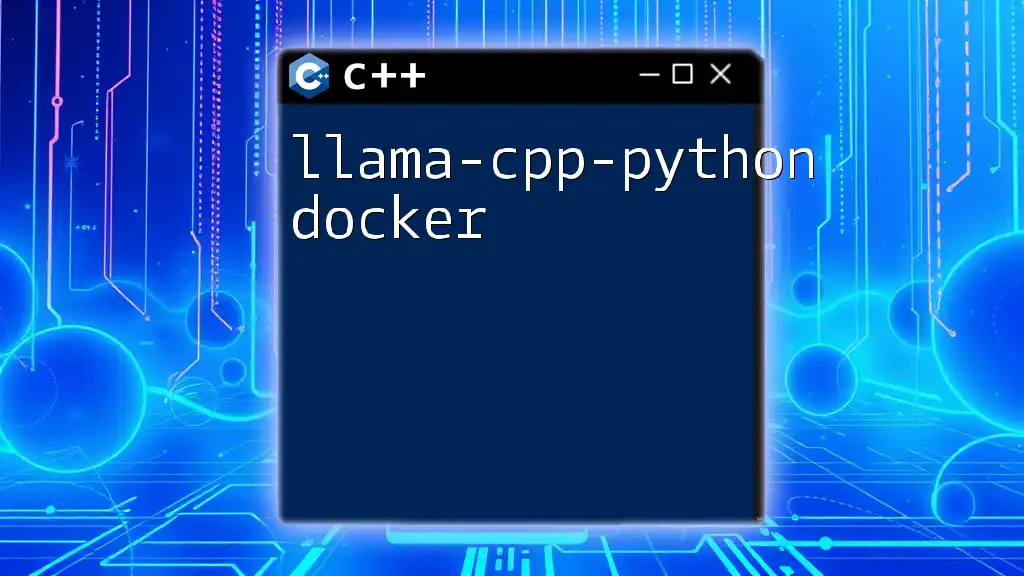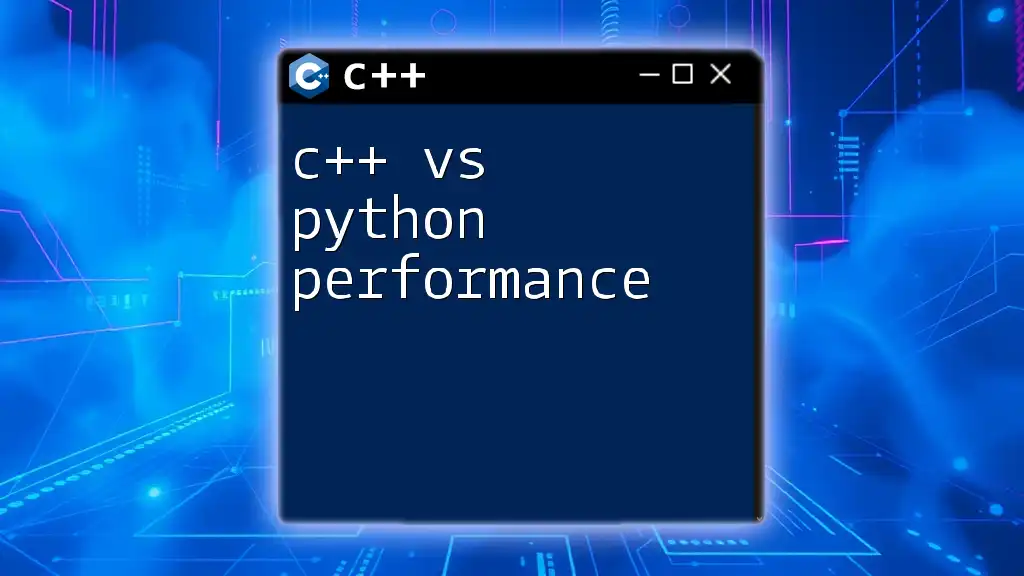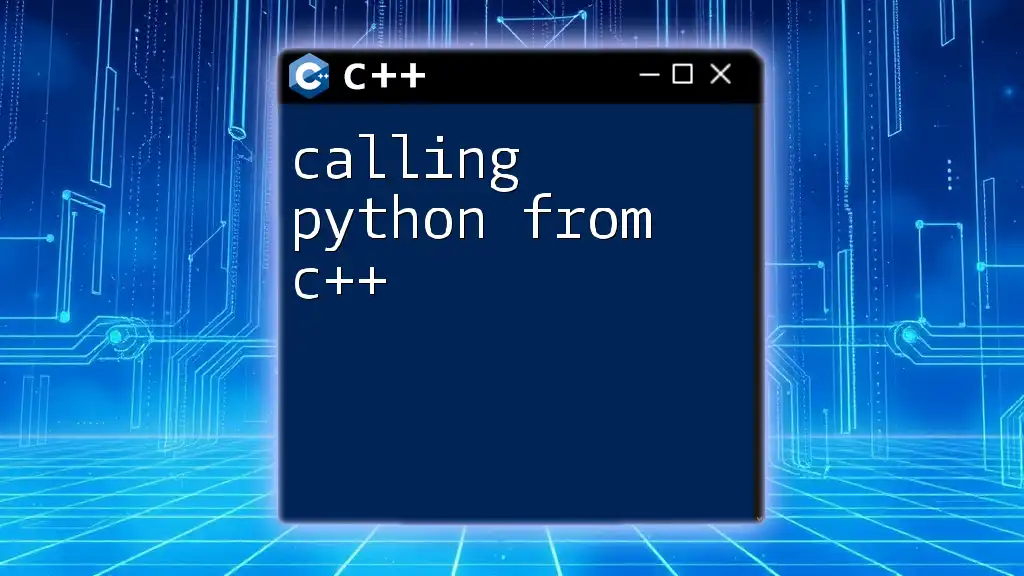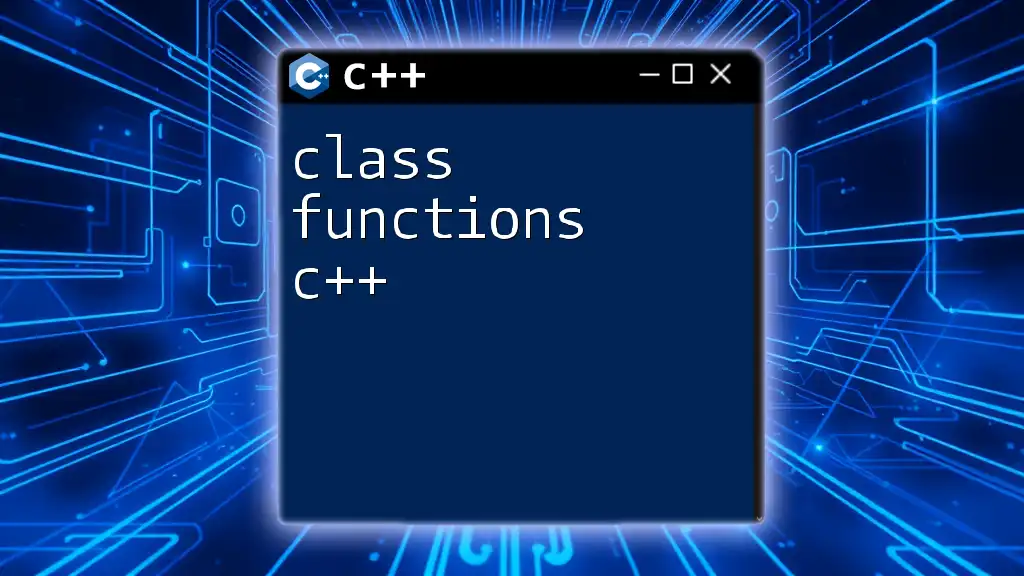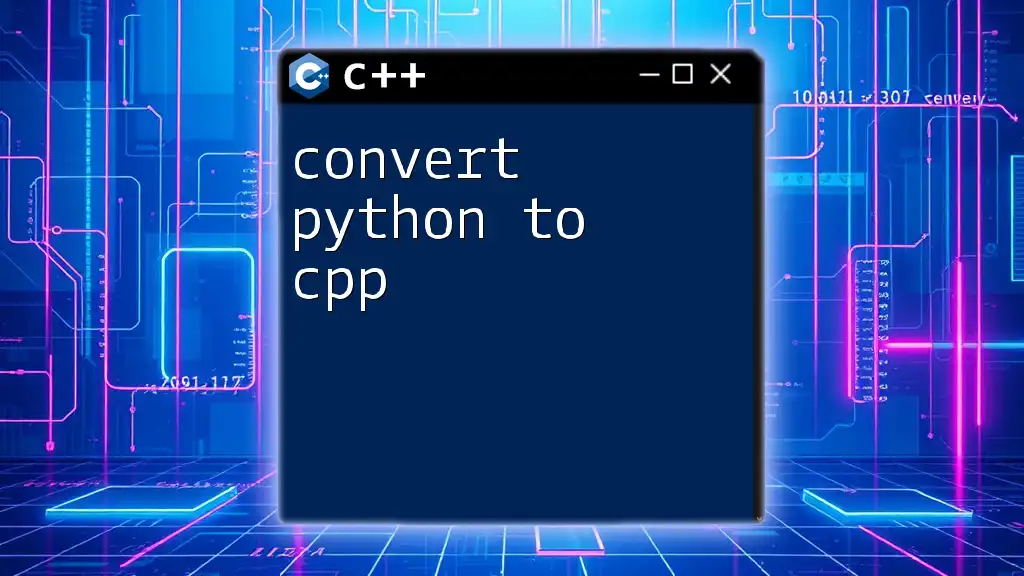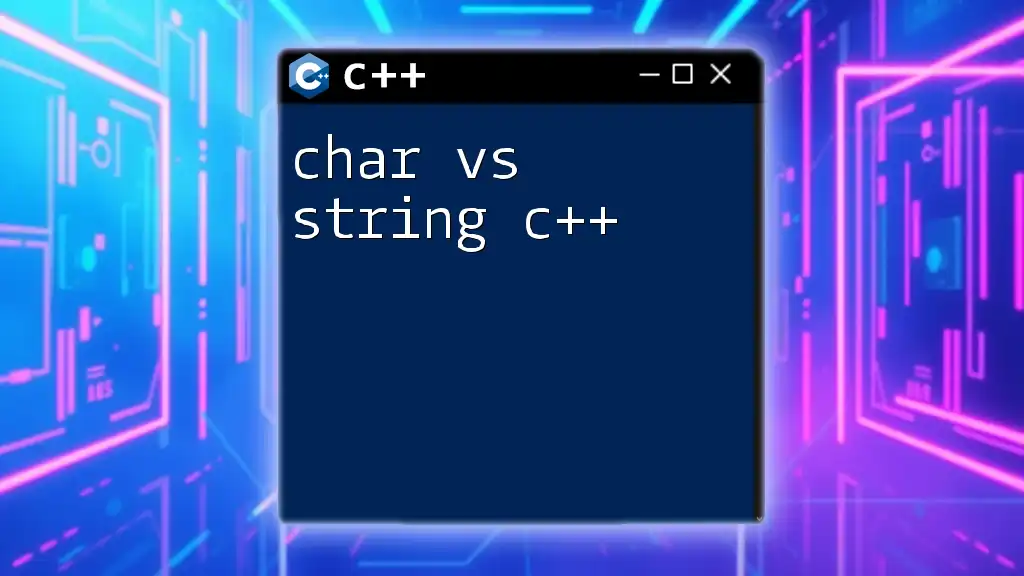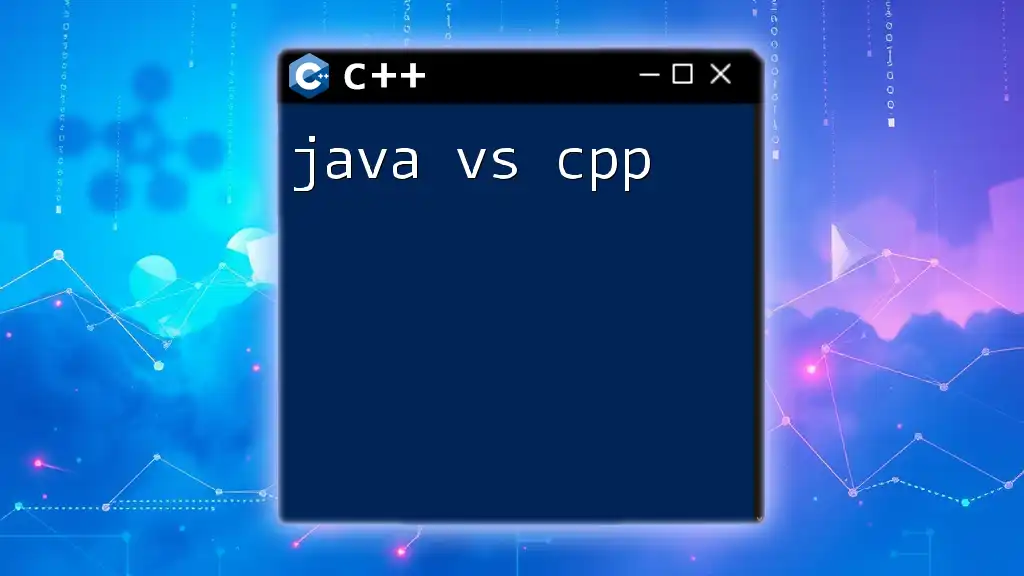Java and Python are known for their ease of use and versatility, while C++ offers greater control over system resources and performance, making it ideal for applications requiring high efficiency.
Here’s a simple example of a "Hello World" program in C++:
#include <iostream>
int main() {
std::cout << "Hello, World!" << std::endl;
return 0;
}
Understanding the Basics of Each Language
Overview of Java
What is Java?
Java is an object-oriented programming language that has become a staple in the software development community since its introduction in 1995. It was designed to have the "Write Once, Run Anywhere" (WORA) capability, thanks to the Java Virtual Machine (JVM).
Key Features:
- Object-Oriented: Java encourages an object-oriented structure, which helps in organizing code effectively.
- Platform Independence: Java code is compiled into bytecode and can be run on any machine with a JVM, making it highly portable.
Use Cases
Java is widely used in enterprise applications, mobile applications (particularly Android), web applications, and large systems that require maintainability and scalability.
Overview of Python
What is Python?
Python is a high-level, interpreted programming language that emphasizes code readability and simplicity. It was created in the late 1980s and has quickly gained popularity due to its ease of use and versatility.
Key Features:
- Simple Syntax: Its syntax resembles English, making it accessible for beginners.
- Dynamic Typing: Python does type checking at runtime, allowing more flexibility in coding.
Use Cases
Python is favored for web development (using frameworks like Django and Flask), data science (with libraries such as Pandas and NumPy), artificial intelligence, scripting, and automation tasks.
Overview of C++
What is C++?
C++ is a powerful general-purpose programming language that builds on the foundations of C. Introduced in the early 1980s, it includes object-oriented features and is often used for systems programming and applications requiring high performance.
Key Features:
- Low-Level Programming: C++ provides high control over system resources, making it suitable for system-level programming.
- Performance: C++ is a compiled language, typically leading to faster execution compared to interpreted languages.
Use Cases
C++ is commonly used in game development, real-time simulations, resource-constrained applications, and high-performance software like operating systems and browsers.
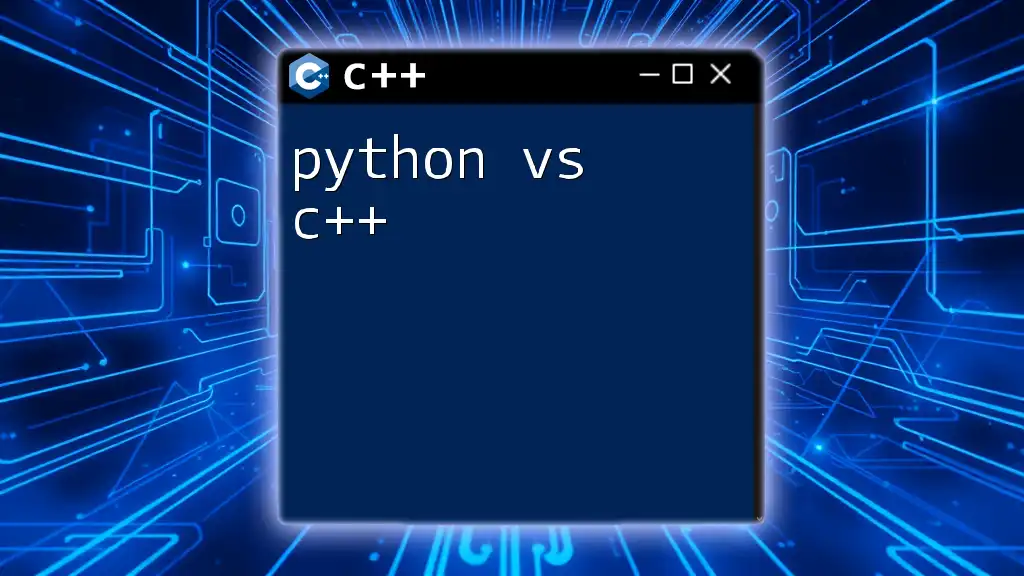
C++ vs Java vs Python: Comparative Analysis
Syntax and Readability
-
Java Example:
public class HelloWorld { public static void main(String[] args) { System.out.println("Hello, World!"); } }Java syntax is often regarded as verbose, which can make it less appealing for quick scripting tasks.
-
Python Example:
print("Hello, World!")Python's simple and readable syntax makes it ideal for rapid development and prototyping.
-
C++ Example:
#include <iostream> using namespace std; int main() { cout << "Hello, World!" << endl; return 0; }C++ syntax is a mix of both simplicity and complexity, allowing for high performance but requiring in-depth knowledge of the language features.
Performance
-
Java: The JVM abstracts hardware differences, coming with a slight overhead. Java's performance improves with Just-In-Time compiling but falls short of C++ in raw speed.
-
Python: Being an interpreted language, Python typically has slower execution times compared to both Java and C++. However, libraries written in C/C++ can bridge this gap for performance-critical sections.
-
C++: As a compiled language, C++ is incredibly fast. Its ability to manage memory manually means developers can optimize their code for maximum performance, making it a preferred choice for high-performance applications.
Memory Management
-
Java: Java manages memory automatically through garbage collection, which simplifies development but may lead to performance unpredictability.
-
Python: Similar to Java, Python uses automatic memory management. However, this can also lead to memory overhead and less control for performance tuning.
-
C++: C++ provides manual memory management, allowing developers to allocate and deallocate memory as needed. This gives fine control over resource usage but can lead to complexity, such as memory leaks if not handled properly.
Community and Libraries
-
Java: With a long-standing community, Java has a rich ecosystem of libraries and frameworks, such as Spring for enterprise applications and Hibernate for database access.
-
Python: The Python community has rapidly expanded, especially in data science. Libraries like TensorFlow, Scikit-learn, and Matplotlib are widely used for machine learning and data analysis.
-
C++: C++ also has a robust collection of libraries, particularly for game development (e.g., Unreal Engine and Unity) and system-level programming.
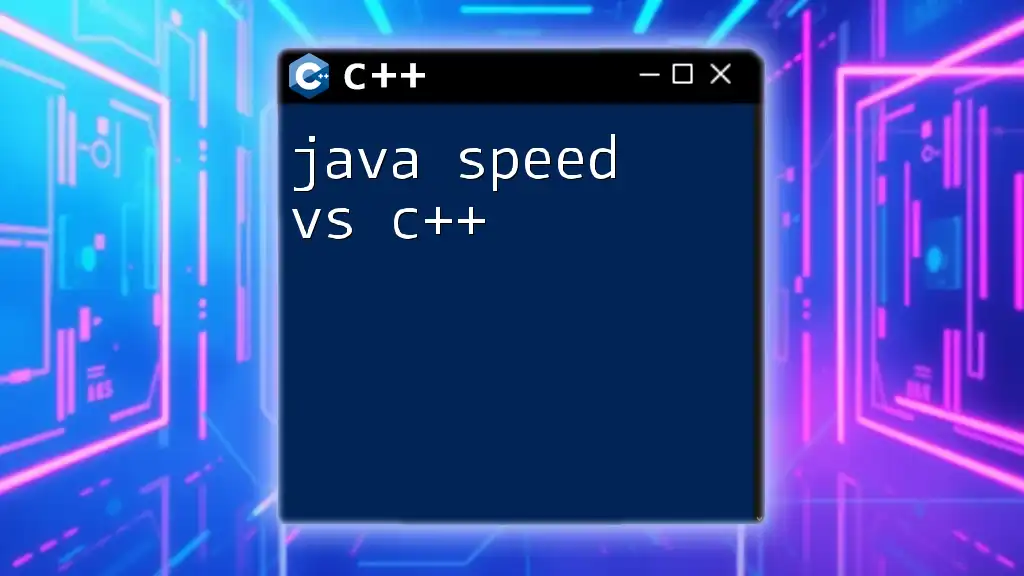
Use Cases: When to Choose Which Language
When to Choose Java
Java is an excellent choice for large-scale enterprise applications where maintainability and scalability are paramount. It is also the go-to language for Android mobile development and web applications due to its strong community and extensive libraries.
When to Choose Python
If you’re diving into data science, web development, or automation, Python is the language of choice. Its simplicity and powerful libraries can vastly improve productivity, making it a popular choice among startups and experts alike.
When to Choose C++
Opt for C++ when performance is critical, such as in game development, real-time systems, or applications requiring complex memory management. It’s also widely used in the development of software that interfaces closely with hardware.
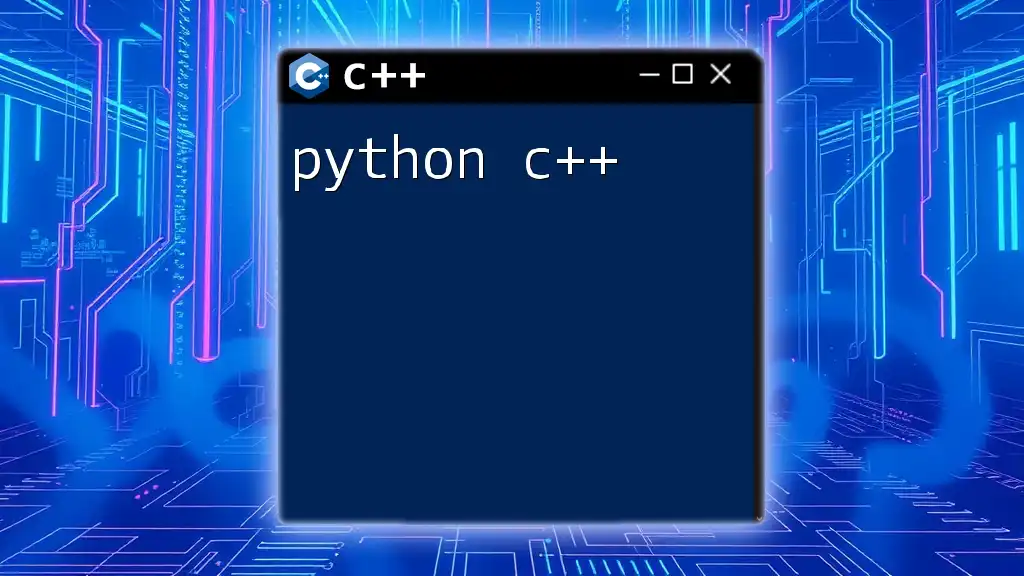
Learning Curve and Development Environment
Getting Started with Java
To get started with Java, download the Java Development Kit (JDK) and an IDE like IntelliJ IDEA or Eclipse. There are countless resources, including online tutorials and courses on platforms like Coursera and Codecademy.
Getting Started with Python
Python is easy to set up. Start by downloading the latest version of Python and use lightweight IDEs like VSCode or Jupyter Notebook. There are many free resources available, from official documentation to beginner-friendly tutorials.
Getting Started with C++
C++ requires a bit more setup. Download an IDE like Code::Blocks or Visual Studio. For beginners, resources include the official C++ documentation and online platforms like Codecademy, which offer interactive courses.
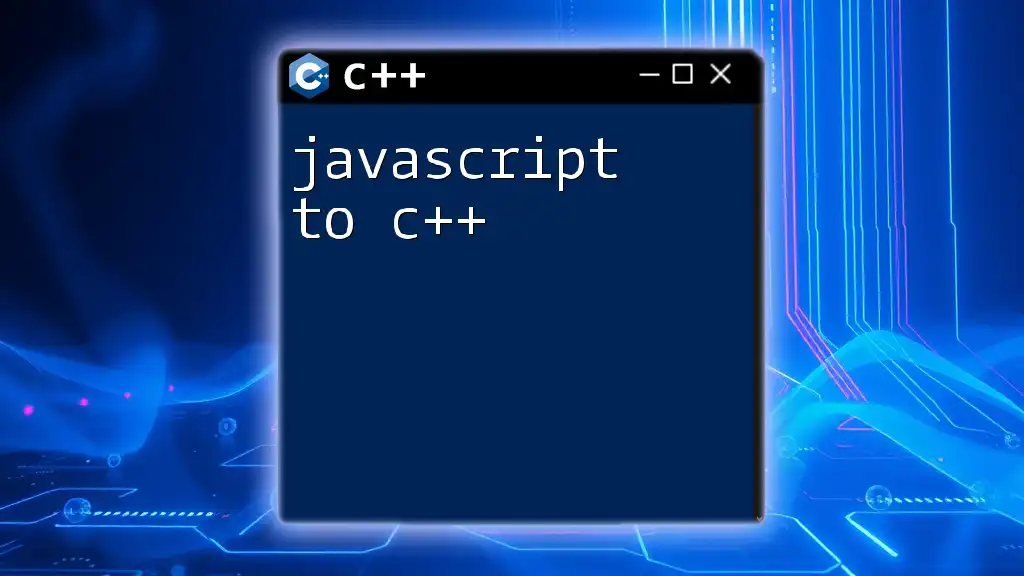
Conclusion
In the showdown of Java vs Python vs C++, each language has unique strengths and weaknesses based on the use case and developer needs. Whether it's Java's robust ecosystem for enterprise applications, Python's elegance for rapid development, or C++'s performance in resource-intensive applications, understanding these differences can help you choose the right language for your next project. Each language offers a vast landscape of possibilities, and exploring them can open up new avenues in your programming journey.

